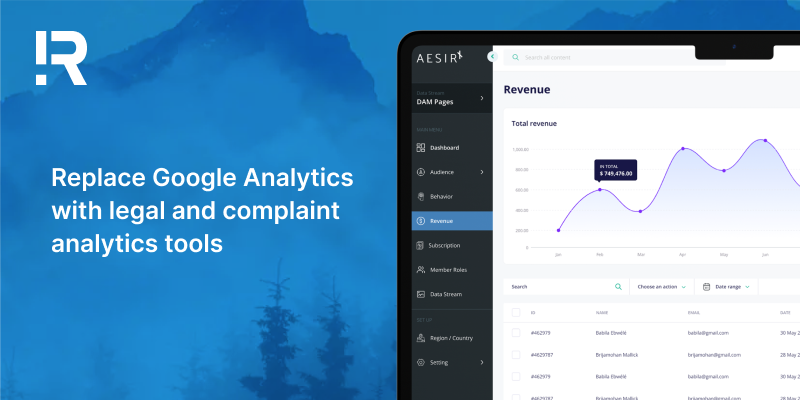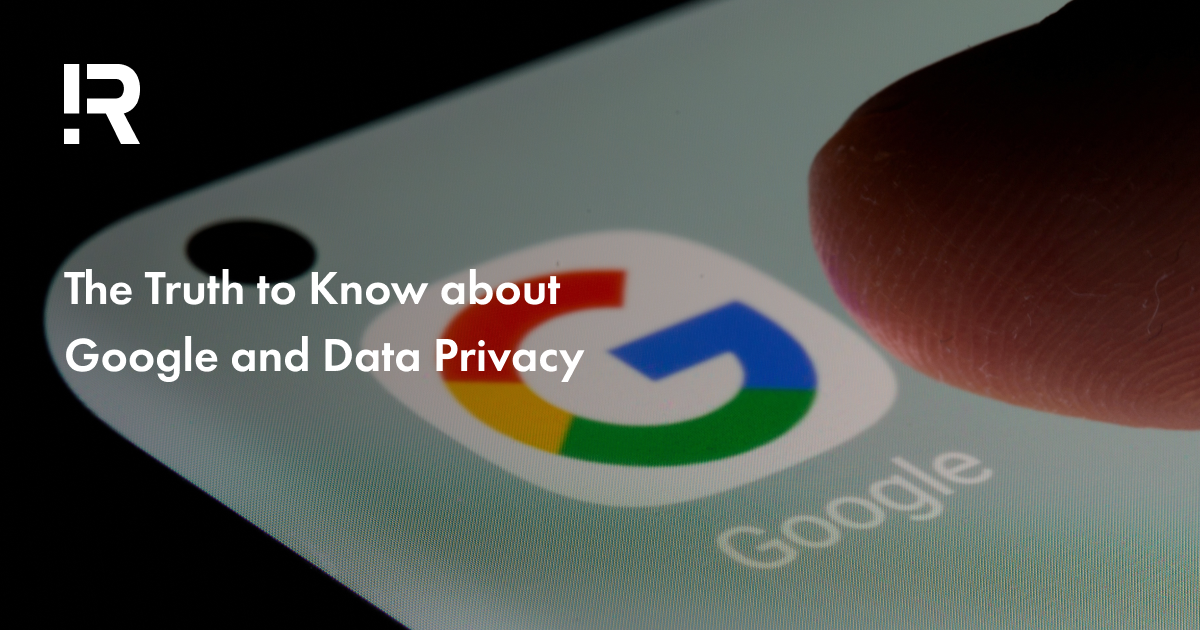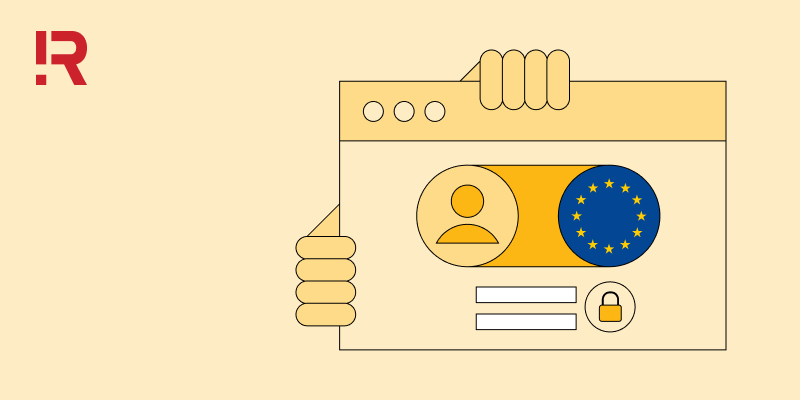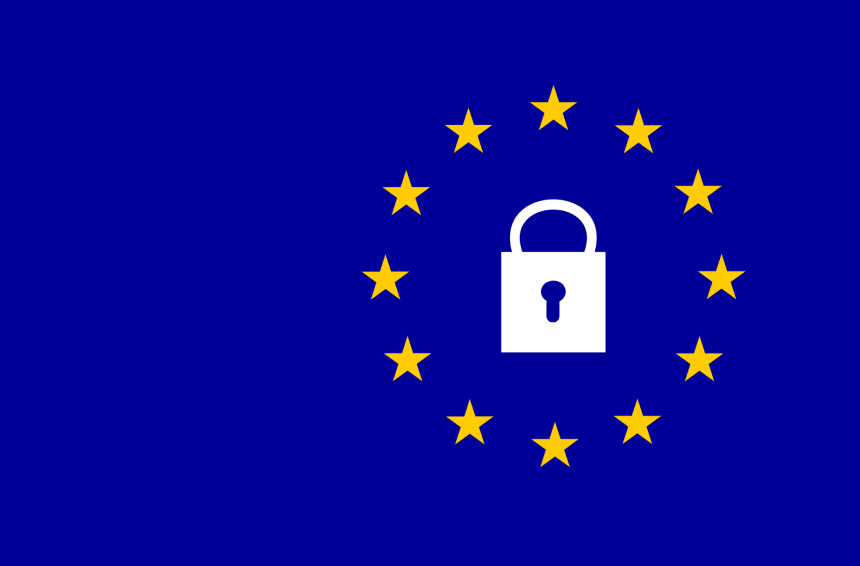1. Google tracks users even when you're not using their services
Google is well-known for a wide range of products and services, including Chrome, Android, YouTube, and Gmail, through which they can collect data on users' activities and usage habits across multiple platforms. This information is used to personalize the user experience and display relevant advertisements.
Furthermore, Google is believed to track users even when they are not using the company's services. Some Google technologies and software have the ability to collect information about users without their explicit knowledge or consent.
For example, Google Analytics is widely used on websites to track user activity and collect data such as IP addresses, web browsers, access times, and website interactions. The goal is to track engagement, visitor count, and other metrics in order to better serve advertising and other goals. The information gathered can be linked to users' Google accounts and used to create detailed user profiles. As a result, when users visit a website that uses Google Analytics, they inadvertently grant Google access to their data and browsing history.
Most users appear to be unaware of this problem because they have not been explicitly informed about how Google handles their data across its services. Some people are aware of this, but they are willing to give up their privacy rights in order to use Google's free products.
Since 2012, Google has been embroiled in a slew of privacy scandals. Many countries, including the United States (2012), Germany (2013), Spain (2013), France (2019), Australia (2019), and South Korea (2022), have sued and fined the company for unauthorized collection and use of users' personal information.
2. Methods to prevent Google from tracking your personal data
Some people believe that Google's collection of personal information has no impact on them, but think again. In some cases, that data can be used by hackers to steal bank accounts and other sensitive information. Your political beliefs, personal preferences, or even messages exchanged with loved ones, as well as your browsing habits, can all become commodities on the “black” market.
There are currently strict data privacy regulations in place, such as GDPR (Europe), CCPA (USA), PDPA (Singapore), and PDPD (Vietnam). However, users must take responsibility for protecting their personal information until the issue of unauthorized data collection and usage is completely resolved. Even a minor detail on the internet can cause you harm at times. As a result, the best way to prevent Google from tracking your personal information is to:
Adjust and control Google's activities through Activity controls
- Directly access the Activity controls page.
Note: In the top right corner of the screen, sign in to your Google account.
- Google collects data from a variety of activities, including search history, location, YouTube, personalized advertising, and more. By selecting each item, you can enable or disable specific activities.
Only use first-party data
When you register and log in on the web, your information is saved and remembered. This is referred to as a cookie. Today, there are two types of cookies:
- First-party cookies: These are cookies created by the website that the user visits, and they can be deleted at the user's discretion. This type of cookie is frequently used to remember login information, personal preferences, and to provide personalized experiences for the user.
- Third-party cookies: These are malicious cookies created by other websites for the purpose of tracking users and serving advertising and marketing. The use of these cookies exposes users to spam ads.
Many browsers today have completely eliminated third-party cookies, requiring websites and applications to obtain user consent before tracking. As a result, first-party cookies are becoming more valuable.
Using cookies or first-party data respects customers' privacy rights because this information is voluntarily provided by users and they have complete control over it. And, with first-party data, businesses can create more interactive advertisements, making customers feel understood and their needs met. This also increases interaction between customers and businesses.
![]()
Replace Google Analytics with legal and complaint analytics tools
If you are a website owner, marketer, or online business owner, you have probably used or are currently using Google Analytics. However, there are effective analytics tools available that do not violate users' privacy that you should consider.
AesirX Analytics, developed by R Digital, is an excellent alternative to Google Analytics. This tool only collects and uses first-party data, ensuring full compliance with the world's strictest privacy regulations, such as GDPR and CCPA.
Furthermore, the removal of third-party cookies causes businesses to lose more than 50% of their data. Meanwhile, AesirX Analytics improves analysis effectiveness by leveraging first-party data, giving businesses a more detailed and accurate understanding of customer behavior and preferences.
Additionally, AesirX Analytics integrates with other advanced security technologies in AesirX's privacy-centric solution series, such as SSO and WEB3 ID. The tool is open-source, completely free, and simple to install in WordPress and Joomla sites.

So, it’s safe to say, it’s time to replace your third-party analytics, and take appropriate steps to ensure the safety and privacy of user data. Businesses should only choose privacy-first solutions to protect customer information and make the internet a safer place for everyone.









